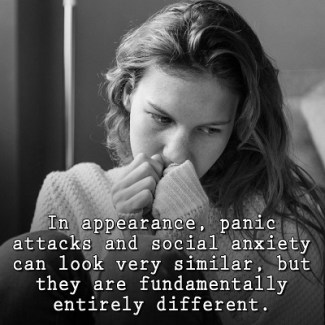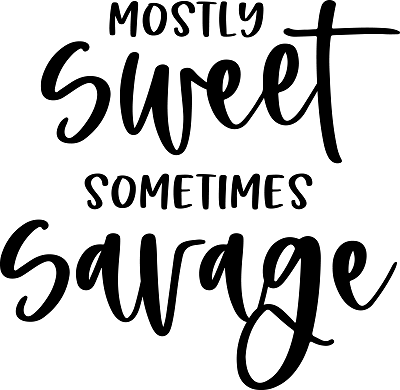 Are they the same? Absolutely not! Can they go hand in hand? Most certainly. Panic attacks and social anxiety are commonly misinterpreted for each other and are even sometimes misdiagnosed. In appearance, they can look very similar, but they are fundamentally entirely different.
Are they the same? Absolutely not! Can they go hand in hand? Most certainly. Panic attacks and social anxiety are commonly misinterpreted for each other and are even sometimes misdiagnosed. In appearance, they can look very similar, but they are fundamentally entirely different.
Panic attacks and social anxiety can be triggered by social situations and even resemble each other in symptomatology, but panic attacks typically exhibit much worse symptoms. They are terrifying to both the one having the panic attack and bystanders.
Here’s the big difference when diagnosing panic attacks: If your panic attack happens at the thought of or being in social situations, you may have social anxiety with panic attacks. If your panic attacks happen without the social aspect, another diagnosis should be considered.
‘Social Anxiety with Panic Attacks’ is relevant and more common in recent years. The DSM-5 (Diagnostic Statistics Manual, 5th edition, has revised the applications for panic attacks and included it as a specifier for other mental health diagnoses.
For instance, a diagnosis of Obsessive-Compulsive Disorder can also carry the specifier “with Panic Disorder”. Likewise, Social Anxiety can also carry the specifier.
Symptoms of Panic Attacks
Panic attacks in social situations are debilitating, petrifying and can sneak up without a moment’s notice. Sometimes they are preceded by a series of warning signs like an uneasy feeling, nausea, and increased heart rate. It just so happens those are all normal symptoms of social anxiety, so picking up on an impending panic attack isn’t always easy.
Here are several common physical and psychological symptoms experienced with panic attacks:
- Racing heart, shortness of breath
- Shaking/trembling
- Profuse and unexplained sweating
- Chest pain
- Abdominal pain, nausea
- Dry mouth
- Ringing of the ears
- Numbness or tingling
- Dizziness, light-headedness
- Weighted extremities, like something is pulling downward
- Feeling detached from the body (out of body experience)
- Hyperventilation
- Passing out
- Unhinged in reality
The symptoms and triggers are as different as people in general. One person might have a panic attack when faced with public speaking obligations while another might experience a panic attack merely thinking about going to a wedding and sitting at a table with strangers. Notice how both are vastly different situations but are both related to a social anxiety facet.
Furthermore, each person who suffers from social anxiety with panic attacks may have their own unique combination of the above symptoms; albeit they are more complex and intense than social anxiety symptoms alone.
Why Panic Attacks?
In short, panic is how the body sometimes reacts to severe, unrelenting stress. A healthy human body is pretty resilient. We get over illnesses and come bouncing back. However, what about an illness or feeling that doesn’t go away so easily.
Stress does this. Stressors about social anxiety are tough, hard to manage and seem enormous. Bigger than life. Like something unimaginable is going to swallow you whole if you continue in this situation. If fleeing isn’t an option, panic ensues.
Some researchers suggest a genetic component to panic attacks. This seems likely as social anxiety is largely due to genetics and/or underdeveloped social skills. Our bodies have to cope one way or another with what we subject them to and panic attacks are an example of too much stress for too long.
Treatment
Social anxiety is the third most common cause of alcoholism in the United States. People suffering from these crippling symptoms frequently turn to alcohol.
Alcohol aids in warding off the anxiety components long enough to get through the social situation. The problem with using alcohol as a crutch is that it becomes habitual and less effective as time goes on. Then the use starts to be more than just during intense social engagements, and may be entertained during all times of the day, every day.
As with social anxiety alone, treatments for panic attacks with social anxiety are much the same. Of course, a diagnosis should be made by a trusted health care or mental health care specialist. Psychotherapy or “couch time” is a viable option. Addressing the underlying issues and getting to the root of the problems could alone work.
Group therapy is also commonplace in treatment. Sometimes though, medications might be indicated.
Panic attacks with social anxiety may seem like the end of the world, but it is treatable. It will take dedication, time and patience. These horrendous and dreaded symptoms can be drastically lightened and the whole world look new and exciting. It’s worth a try, that’s for sure!




